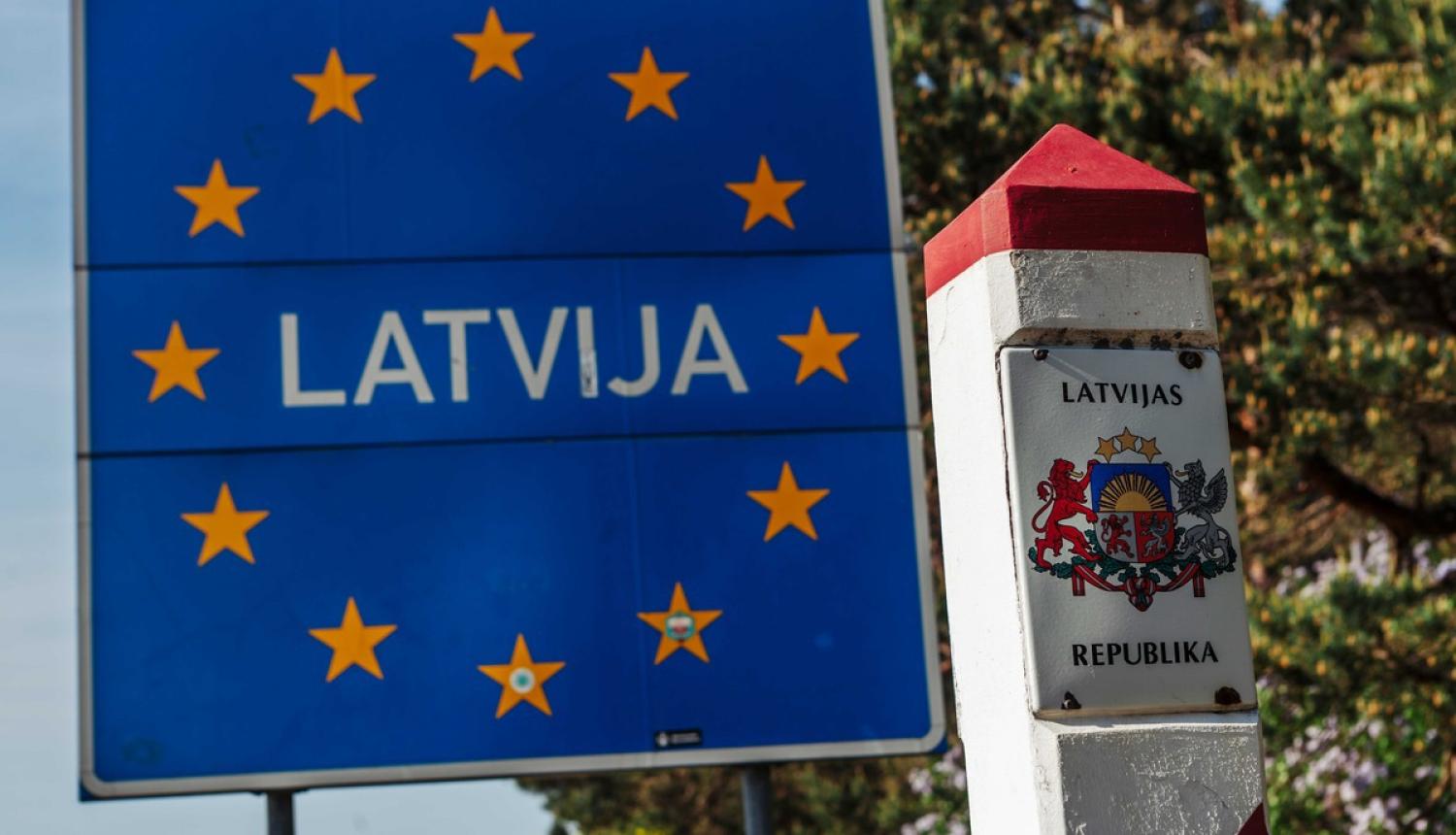Today, on 4 September, the government adopted amendments to the Cabinet Regulation*, applying a special regulation in the borderland so that people who work or study in Lithuania or Estonia on a daily basis can continue to do so if the morbidity increases in neighbouring countries. This was an important issue, as with the rising incidence of Covid-19 in neighbouring countries, there could be a situation where 14 days of self-isolation should be observed for all those returning from Lithuania and Estonia. This indicator has not yet been reached.
The latest national incidence data show that neither Lithuania nor Estonia has reached the incidence rate yet, which requires 14-day self-isolation when returning from these countries (14-day Covid-19 incidence rate in Lithuania is 15.7, Estonia - 15.9). This time, when updating the data, epidemiologists have contacted their Lithuanian and Estonian colleagues to find out the latest data. The European Centre for Disease Prevention and Control uses data from the previous day, which will be used with regard to other countries.
If the incidence increases in neighbouring countries, the government's decision stipulates that persons living in the Latvian borderland and going to work or an educational institution in Lithuania or Estonia on a daily basis will be able to continue to do so. At the same time, these persons, when being in Latvia, for example, when returning from work, shall have to observe the principles of self-isolation.
This means that on a daily basis these persons will be able to freely go to Estonia and Lithuania, as well as return to Latvia in the following cases:
to perform work duties in Lithuania or Estonia (if a document certifying the fact of employment can be presented); to receive child supervision services or to attend a pre-school educational institution (if a certificate issued by the service provider or the educational institution can be presented); to visit educational institutions, as well as interest education groups (if a statement issued by the educational institution can be presented); to accompany persons with special needs to an educational institution, such as schools and kindergartens, as well as interest education (if a certificate issued to the person by the institution can be presented); to receive health care services prescribed by a doctor that are not available in the territory of Latvia.Persons will also be able to cross the state border if it is necessary to organise or attend a funeral. It will also not be necessary to observe self-isolation for persons who cross Latvia in transit. This means that persons traveling in transit will have to cross the territory of Latvia within a maximum of 12 hours, without planning an overnight stay in the territory of Latvia.
In turn, when returning to Latvia, for example, in the evening after performing work duties in Lithuania or Estonia, these persons should observe the following additional security principles:
avoid exposing others to the risk of infection, which means not hosting guests, arranging and attending private meetings, visiting social and public places and crowded places. Exceptions are, for example, the workplace or situations related to the above-mentioned cases for crossing the border; when performing work duties or providing a service, the prescribed precautions should be observed; mouth and nose covers should be used when staying in public places; if any signs of respiratory infection develop, self-isolation should be provided immediately and a physician should be consulted.It should be emphasised that these requirements do not have to be applied yet, but this will be the case in the event of an increase of incidence in neighbouring countries.
The government also agreed to apply the approach to Lithuania and Estonia that in the case of increase in the incidence rate above 16 per 100,000 population, the speed of increase in incidence will be assessed - if it does not exceed 10% compared to the previous week, the epidemiological situation will be monitored for another week to apply specific restrictions. Estonia and Lithuania have also committed to implementing the same procedure with Latvia.
The list of national Covid-19 incidence indicators will be available today on the SPKC website and will be updated every Friday, and shall come into force with regard to the self-isolation requirement on Saturday at 00.00.
*Amendments to Cabinet Regulation No. 360 of 9 June 2020 “Epidemiological Safety Measures for the Containment of the Spread of Covid-19 Infection”



